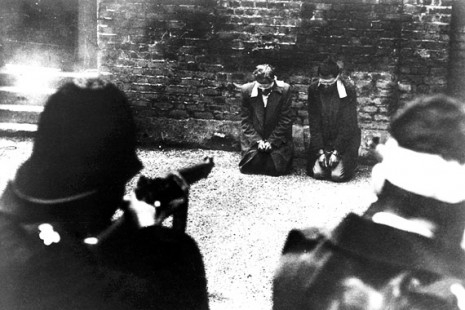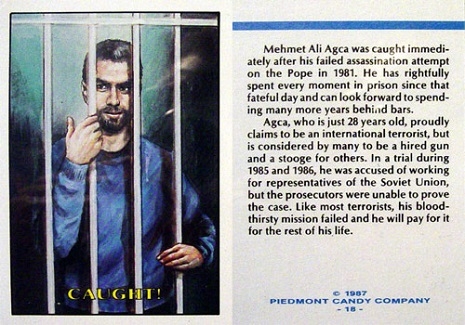
Is he smiling? Did they depict him smiling? Are they trying to teach children or haunt their dreams?
Millions of children all over the world are forced to learn about terrorism through first-hand experience, often before they’re old enough to grasp the geopolitical context of the violence. But what about those poor kids who grow up without that kind of hands-on education? What’s the best way to fill young minds with the horrors of war, colonialism, and oppression? Why, trading cards, of course! And that’s exactly what the Piedmont Candy Company did in 1987, with… somewhat problematic results.
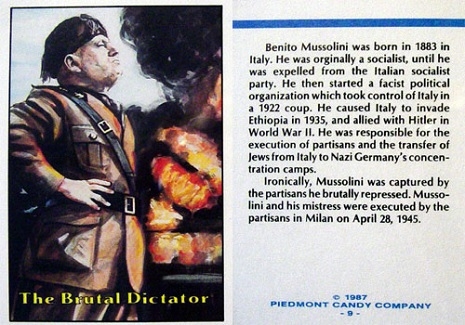
Mussolini was a fascist dictator, and while he used terror tactics during his reign, “fascist dictator” is a higher, more historically relevant ranking. Plus, by 1987, he had been dead for over 40 years. He looks good on a card, but this is clearly phoned it. Try harder, Piedmont Candy Company.
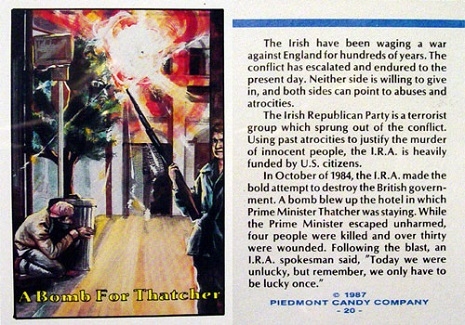
“The Irish have been waging war against England for hundreds of years.” Really, Piedmont Candy Company? Really?!? That’s your read on anti-English sentiment among the Irish?
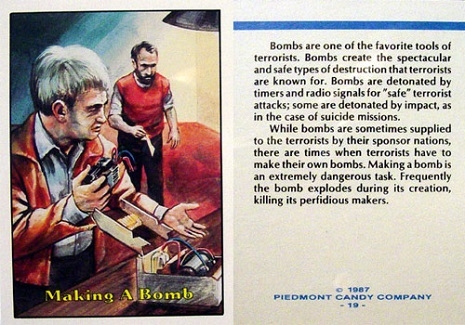
I feel like the fact that they mention the “safety” of bombs twice before telling kids how dangerous they are is a bit counterintuitive. (Really kids! Don’t make bombs yourself, but they’re super-safe, so if you happen to come across one, go to town!)
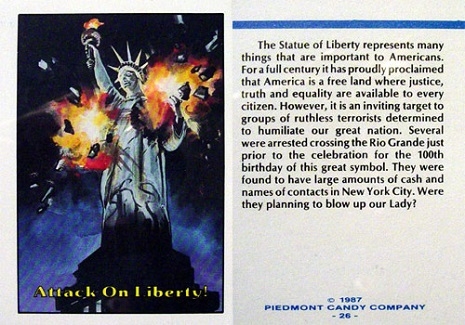
To answer your speculative question, no. No, they were not going to bomb the Statue of Liberty. You’re welcome.
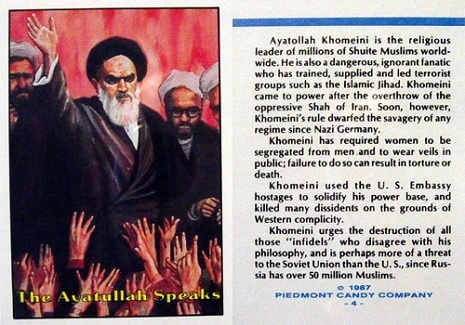
Call me a snob, but I find it difficult to take your assessment of Iranian politics seriously when you can’t spell “Shiite” correctly.
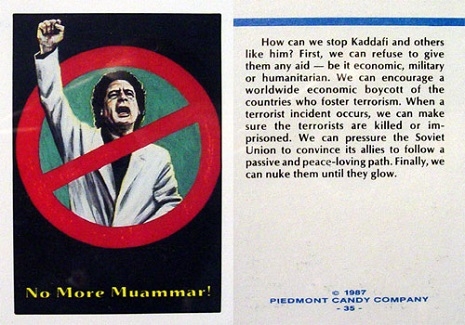
Jesus fucking Christ! Lacing children’s candy with ahistoric, fear-mongering propaganda isn’t enough? You have to make them bloodthirsty, too? If you’re trying to turn them into little killing machines, why not just put angel dust, steroids, and bath salts in the chewing gum?
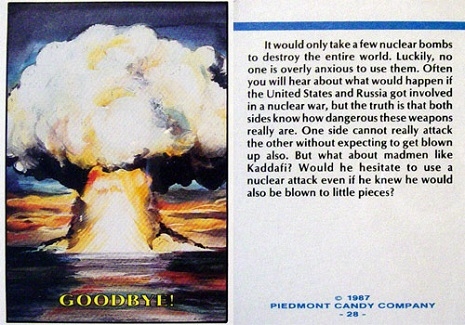
Wait, weren’t you just advocating for the liberal use of nuclear weapons?!? “No one is overly anxious to use them!” First of all, I’m quite sure you mean “overly eager,” not “overly anxious.” Second of all, you are overly eager to use them, Piedmont Candy Company! You are the terrifying example of nuke-happy psychos!
The insidious nature of sneaking ignorant, paranoid, violent nationalism into trading cards is baffling, and yet somehow simultaneously totally unsurprising. I wonder if the economic realities of 1987 Detroit didn’t add fuel to the panicked, reactionary fire—international politics have always been a convenient distraction from extreme poverty and wealth inequality. Regardless, I’m somewhat comforted that we’re not seeing anything quite this indoctrinating being lobbed at kids nowadays.
And if there is, please don’t tell me! Let me live in a world where candy is still sweet!
Via Organic Mechanic






